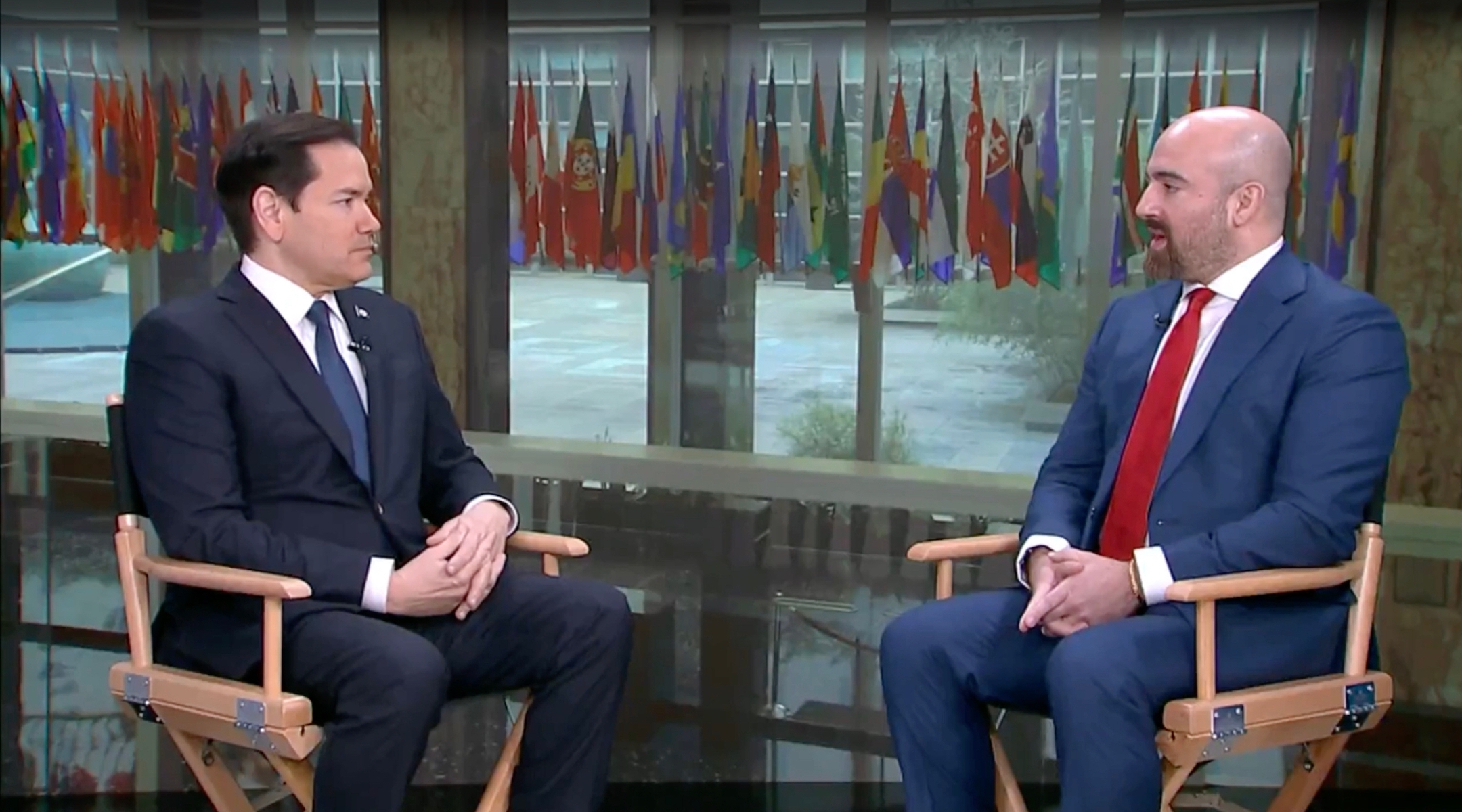Although Donald Trump campaigned on closing the U.S. Department of Education, he doesn’t seem to have gotten around to it yet. What gives?
Destroying the Department of Education has been a project of the GOP for years, and Republicans already introduced bills to eliminate the department in both the House and Senate since Trump’s election. Trump did let Elon Musk cancel $881 million of contracts, gutting the department’s research arm. But for now, the department remains open, though Trump has made noise that an executive order dismantling it is coming soon.
During the committee hearing for her nomination, Trump’s pick to head the department, Linda McMahon, told senators that Trump “will not ask me to do anything that’s against the law” and would not usurp Congress’s power of the purse. She apparently overlooked that Trump has spent the last four weeks doing just that.
She also mused about breaking up the department, maybe sending the administration of the Individuals with Disabilities Act to the Department of Health and Human Services while stressing it was “of high priority to make sure that the students who are receiving disability funding [are] not impacted.”
Sure, give oversight authority for disability funding for students to Robert F. Kennedy Jr.—the guy who thinks vaccines cause autism in children and is already targeting mental health medications. Great idea.
McMahon also talked about moving the department’s Office of Civil Rights to the Justice Department. Sadly, the current activities of that office will fit in quite nicely over at the DOJ, where Attorney General Pam Bondi is threatening criminal investigations into private companies with DEI initiatives and suing cities over their failure to hate immigrants as much as Trump does.
When Trump took office, ProPublica reportsOCR was investigating about 12,000 complaints about civil rights violations in schools, around half of which concerned students with disabilities, while approximately 3,200 related to racial discrimination. ProPublica found that OCR employees are no longer allowed to communicate with anyone involved in cases filed before Trump took office, nor can they open any new investigations based on complaints from the public.
And while most OCR investigations have historically been opened based on complaints from students or their families, the roughly 20 investigations opened in the last few weeks have all been directed by the Trump administration. So, it’s no wonder they are just vehicles for the right’s culture war fixations.
There’s the probe into five Northern Virginia districts that allow transgender students to use the restrooms and locker rooms that conform with their gender identity. Of course, letting trans kids use those facilities does not violate any federal civil rights law, but failing to do so arguably does violate Virginia’s human rights law, which prohibits discrimination based on gender identity.
OCR is also now investigating high school athletic leagues in California and Minnesota for allowing trans students to compete on teams matching their gender identity. Both states have laws that protect transgender students. However, the administration thinks those laws are overcome by Trump’s executive order about women in sports. That order invoked Title IXwhich prohibits discrimination on the basis of sex in education, as the rationale for barring trans women from women’s sports. But as Minnesota Attorney General Keith Ellison explained in an advisory opinion about the investigation, Title IX “does not authorize the President to issue directives with the force of law or to unilaterally rescind all federal funds from all educational programs that do not comply with presidential policy preferences.”
It might be easier to believe that the administration was committed to equality for girls and women in sports if it hadn’t just rescinded the Biden-era rule that would have required millions of dollars in NIL payments to be equally divided between men and women.
Now, OCR isn’t spending all its time weaponizing Title IX. It’s also spending quality time weaponizing Title VIwhich prohibits discrimination on the basis of race. Because this administration believes that only white people are ever discriminated against, it is eager to roll back anything related to racial equality. To that end, OCR issued a Dear Colleague letter about race earlier this month that is breathtaking in its scope and utter lack of legal authority.
Agencies issue Dear Colleague letters to provide guidance about things they regulate. They are meant to help entities comply with existing laws, often by giving detailed examples. They are non-binding but often announce agency priorities about future enforcement actions. Because of that, they usually have significant legal references. For example, an Obama-era letter about behavioral supports for disabled students runs 16 pages, with 30 footnotes referencing federal authority and educational research papers. A joint Justice-Education letter from 2015 about English language learners clocks in at 40 pages and 103 footnotes of dense legal and policy analysis. The 2011 guidance on campus sexual violence is 19 pages stuffed full of statistics and cases.
In contrast, OCR’s Feb. 14 Dear Colleague letter announces a sea change in the law, threatens schools with losing funding, and does so in four scant pages by relying on only one education case:2023’s Students for Fair Admissions vs. Harvard, where the conservatives on the Supreme Court ruled affirmative action in college admissions unconstitutional.
The letter does cite one other case, 1977’s Village of Arlington Heights v. Metropolitan Housingbut that’s a housing discrimination case cited only to support the generic and anodyne assertion that some programs look race-neutral initially, but prove to be motivated by racial considerations upon closer examination.)depa

Though the letter acknowledges that Sffa dealt only with admissions, it goes on to say that the Court’s holding now applies to “hiring, promotion, compensation, financial aid, scholarships, prizes, administrative support, discipline, housing, graduation ceremonies, and all other aspects of student, academic, and campus life.” It also says Sffawhich was only about post-secondary institutions, now applies to preschools, K-12 schools, and state educational agencies.
That is not how legal authority works.
While the letter never outright states that only white people are victims of racism, the vague examples of alleged discrimination are bog-standard conservative whining about just that. It complains about DEI programs teaching students that “certain racial groups bear unique moral burdens that others do not” and says that “treating students differently on the basis of race to achieve nebulous goals such as diversity, racial balancing, social justice, or equity is illegal.”
Schools have a whopping 14 days to comply, even though the letter promises additional guidance “in due course.” However, even McMahon doesn’t seem to know what is prohibited. Under questioning from Sen. Chris Murphy the day before the letter was issued, she said schools celebrating Black History Month and Martin Luther King Jr. Day were fine, even as she declined to answer whether schools would lose funding if they had student clubs based on racial identity because she didn’t want to address “hypothetical situations,” and was “not quite certain” whether African American history classes are forbidden DEI.
The combination of sparse guidance and wild legal overreach is meant to terrorize schools into complying in advance. It’s impossible to parse where the administration will draw the line, so many schools may decide the safest course of action is to remove every type of racial preference imaginable.
There are plenty of reasons it is critical to keep the Department of Education open. But letting Trump turn its Office of Civil Rights into an attack dog definitely isn’t one.
Campaign Action











